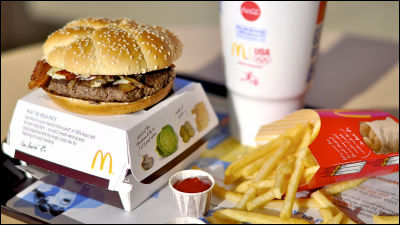What was a former librarian trying to do after recording television broadcasts 24 hours a day for over 30 years, saving them onto 70,000 video tapes?

Born in Philadelphia, Pennsylvania in the northeastern United States in 1929,
Marion Stokes, The Archivist Who Recorded 30 Years Of TV
https://allthatsinteresting.com/marion-stokes

Stokes, who is said to have had a compulsive collecting habit, also known as Plyushkin Disorder , recorded television programs 24 hours a day for 35 years from 1977 until his death in 2012. However, because the VHS tapes he used for recording had to be changed every 6 to 8 hours, there are also stories of him having to quickly finish eating at a restaurant and return home in time to change the tape. Stokes left behind more than 70,000 recorded tapes, and after his death, all of them were collected by the Internet Archive, which stores a large number of web archives and media materials as valuable materials.
Stokes' work is featured in the documentary film RECORDER: The Marion Stokes Project, directed by Matt Wolf .
A woman who recorded more than 70,000 TV news programs on videotape for over 30 years - GIGAZINE

Butler, formerly known as Marion Margaret, married teacher Melvin Metelitz in 1960 and gave birth to a son named Michael. The couple later divorced and she changed her name to Marion Margaret Stokes when she remarried TV host John Stokes Jr. The Stokes bought their first videotape recorder around 1975 and initially used it to record their favorite sitcoms, documentaries, and news that caught their eye.
But something changed for Stokes during the 1979 Iran hostage crisis , when she became fixated on TV recordings. 'My mother bought countless tapes, and once she started recording, she left the TV on all day and never turned it off,' her son Michael Metelitz said in a 2019 documentary.
Stokes gradually bought more TVs and began recording multiple shows at once. Eventually, he had eight recorders recording shows that were broadcast at the same time. The tapes piled up to the point where they were ready to collapse at any moment, taking over several apartments he owned. 'It was a logistical nightmare, that's the only way I can describe it,' Michael said. The following images show part of Stokes' collection, which Michael shared with Fast Company in an interview.

Stokes had a strong collecting habit, and in addition to television programs, he subscribed to and kept six daily newspapers and 100 to 150 monthly magazines, collected 30,000 to 40,000 books, and owned a large number of toys and dollhouses. He also had a visionary passion for computers, and by the time of his death, he had collected 192 Macs. Stokes successfully invested in Apple stocks and purchased nine apartments to use as warehouses for storing tapes.
Stokes' obsessive recording was motivated by a concern that 'as time passes and stories are re-told, the facts and details in the initial reports may be lost or obscured. Therefore, by recording how the story was originally reported, he was trying to capture the facts.
Stokes died on December 14, 2012, at which point the Stokes TV Archive project ended. However, a year later, the Internet Archive, which had taken over Stokes' collection, began a project to digitize all of the tapes and make them available online, moving on to a new stage. Roger McDonald, who is in charge of the television division at the Internet Archive, said, 'The Internet Archive's television team aims to record television news from across the United States in digital format and make it all a searchable archive. Stokes' life was amazing, and his collection is an invaluable resource. Stokes' attitude and passion for archiving was heroic.'

According to Michael, Stokes' recording work was motivated by a strong belief that the data would be useful. In fact, the Internet Archive is indexing, archiving, and digitizing television programs, just as Stokes envisioned. McDonald said, 'Some of the news from the past is lost forever. But we don't know if it's completely lost, because there may be other people like Marion Stokes who have the same passion as us.'
◆ Forum is currently open
A forum related to this article has been set up on the official GIGAZINE Discord server . Anyone can post freely, so please feel free to comment! If you do not have a Discord account, please refer to the account creation procedure article to create an account!
• Discord | 'How many video tapes do you have at home?' | GIGAZINE
https://discord.com/channels/1037961069903216680/1257266582200258663
Related Posts:
in Note, Posted by log1e_dh






